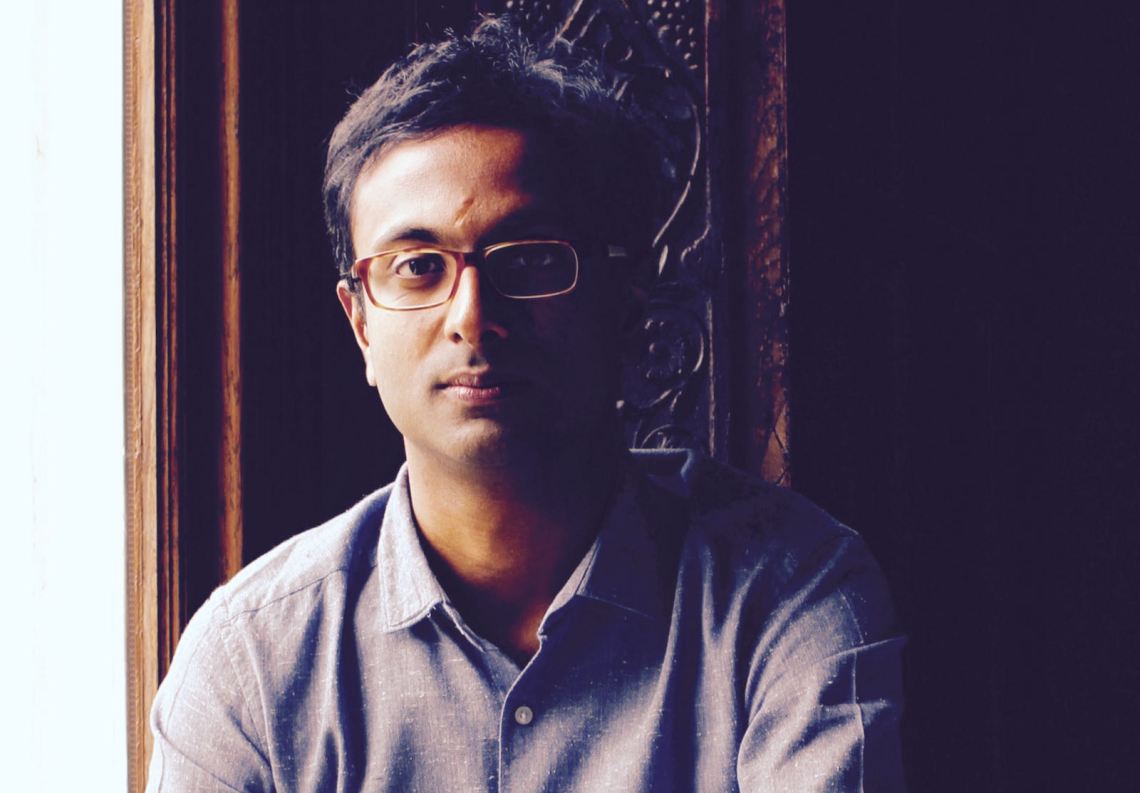On February 23, 2021, we published “No Direction Home” by Anjan Sundaram, a personal essay about the ways his experience as an itinerant journalist, working in far-flung corners of the globe, has mirrored his his father’s life as a business executive who left India for a career in Dubai. The piece explores both the similarities in their lives, their shared condition of migratory rootlessness, and the differences—particularly the father-son tensions about what kind of worldly success or professional attainment is worth the migrant’s bargain of losing all connection to home.
“A few months ago, my father asked if I wanted to work for Elon Musk,” Sundaram told me via email this week, from Cambodia, where he currently lives. “He said it would make him proud. It made me wonder if he was not proud of me now.
“But I felt a larger narrative was at work in his words: about how immigration unmakes and remakes us,” he went on. “My father shed large parts of his identity and made himself anew as a successful corporate employee…. Choices have been made on all sides, I believe, that we are each unable to appreciate or understand.”
Sundaram Sr. has plenty of reasons to take pride in his son, in fact. Anjan has published two books about his experiences as a foreign correspondent: the first, Stringer: A Reporter’s Journey in the Congo (2013), was a memoir of his inaugural stint as a freelance journalist in a conflict zone; the second, Bad News: Last Journalists in a Dictatorship, which appeared three years later, documented the systematic campaign against news reporters in Rwanda. His writing and reporting also led to his hosting a documentary about the rise of Hindu nationalism in India, an appearance on The Daily Show with Jon Stewart, and a TED talk about bearing witness to atrocities.
No doubt, what was somewhat inexplicable to his father was the sharp turn Anjan’s life took after he completed a master’s in mathematics at Yale and, at age twenty-two, flew off to report a war in Congo. As he relates in his essay, he learned that journalism was, in fact, in the family DNA—his great-grandfather had been a well-known correspondent during World War II—but that was a much later discovery. Behind his initial impulse, instead, was a looming, imponderable moral question. “I had read a brief story buried in the middle of The New York Times, at the bottom of a page, about how millions of people had died in Congo’s war. I wondered why that story was not on the front page. Why do some of the great wars of our time largely pass forgotten. Is it apathy? Do we want to turn away from violence? Is there shame or guilt that our modern economic systems feed on conflicts to source raw materials we use in technology?
“A first step, it seems to me, is to speak more about our world, more completely,” he concluded. “We must illuminate these places for ourselves.”
Still, I wanted to know how someone who’d specialized in abstract algebra had made this conceptual, epistemic leap to writing about very concrete, often bloody events in the real world. The intellectual work is not so very different, he said: “The mathematician creates and explores new worlds. The process of creation in writing is similar to me.” But there is an added dimension: “When I write prose, even sitting alone in my room, I feel I could possibly be speaking to the world, to many people. I feel a greater communion, regardless of how many people later actually read my words.”
The actual craft of writing, though, was something Sundaram had to learn anew. “I spent most of my youth immersed in mathematical equations,” he said. “So I have had to educate myself in literature as an adult, reading those who tread a similar path before me. As a young writer setting out to Congo, I had looked to Ryszard Kapuściński and Bruce Chatwin…. I believe, as V.S. Naipaul once wrote in an essay on Joseph Conrad in the Review, that a writer should interpret our world and not merely be a camera.”
As the book on Rwanda especially reveals, his chosen work of reporting “small wars” can be deadly dangerous. He takes steps to be as careful as possible, but in the end, he accepts the physical risk involved.
“One of the last times I feared for my life was in a rebel zone in the Central African Republic,” he told me. “Three hundred guns were pointed at me and my colleagues. At one point, I realized they were about to kill me; death was close. I stood up and told the rebel commander that if anything happened to me or my colleagues it would be very bad for him. He happened to believe me.”
Advertisement
With age and experience, though, his perspective on what makes writing dangerous has evolved. “As I’ve grown older, I’m more aware of the psychological risks we must take in order to grow,” he said. “Writing this piece for the NYRB about my relationship with my father represented such a psychological risk. It was my way to reconcile with my father and my inheritance from him. I needed to write the piece, but I worried about how he would respond.”
In the event, his father responded first with a thumbs-up emoji, Sundaram said, and then they talked, with a new intimacy: “For a long time, I had believed I could not speak with my father in this way while he was still alive.”


